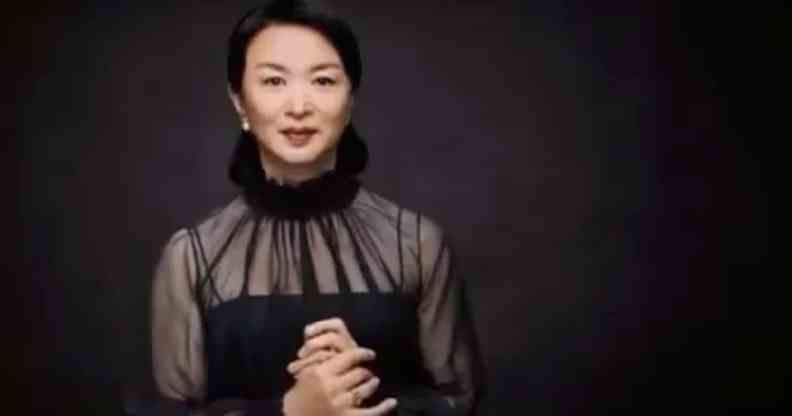Dior casts China’s trans superstar Jin Xing as the new face of J’adore fragrance

Jin Xing, one of the world’s most famous transgender celebrities, appearing for Dior (YouTube/Dior)
Dior has cast the Chinese transgender superstar Jin Xing as the new face of Dior J’adore fragrance.
Jin, 53, is a former army colonel, ballet dancer, actress, director and choreographer, and a leading figure in Chinese contemporary dance. She made waves as the first person in China to go public about her gender-affirmation surgery in 1995.
She’s since become one of the world’s most popular TV hosts with a chat show drawing 100 million viewers a week, earning her the title of “the Oprah of China”.
Dior announced the partnership with Jin on its Weibo account, describing her as a woman of courage with a passion for freedom and art.
In a video for the fashion house, Jin spoke of her support for women’s independence and individuality, qualities the fragrance hopes to deliver.
“Women have a very critical role in modern society, in places as small as a family and as big as a country,” she says. “Therefore, I think it is very important for women to stay independent.
“I only hope everyone can live as their own selves, this way we will make the world an abundant place.
“Do not compare yourself to others,” she continues. “Come up with your own way of thinking to create a colourful and varied world.”
Commenting on the campaign, Beijing marketing expert Vickie Zhang told the Global Times: “Women’s perfume can very much be a gender-specific product that stresses ‘femininity’ in promotional materials so that consumers will desire feminine beauty.
“However, we are now in the time when the public, especially the target consumer group for women’s perfume, have changed their minds about what defines women’s values and so have begun to desire things that have traditionally been seen as more masculine traits, such as being independent and tough.”
Jin’s partnership with Dior was widely praised on Chinese social media; nevertheless, it represents a bold statement from the brand in China, where LGBT+ rights appear to be stalling and transgender people are only partially recognised.
Being transgender is classed as a mental illness, and trans people must undergo an expensive and stigmatising process to obtain an official diagnosis before they can get hormone replacement therapy legally.

